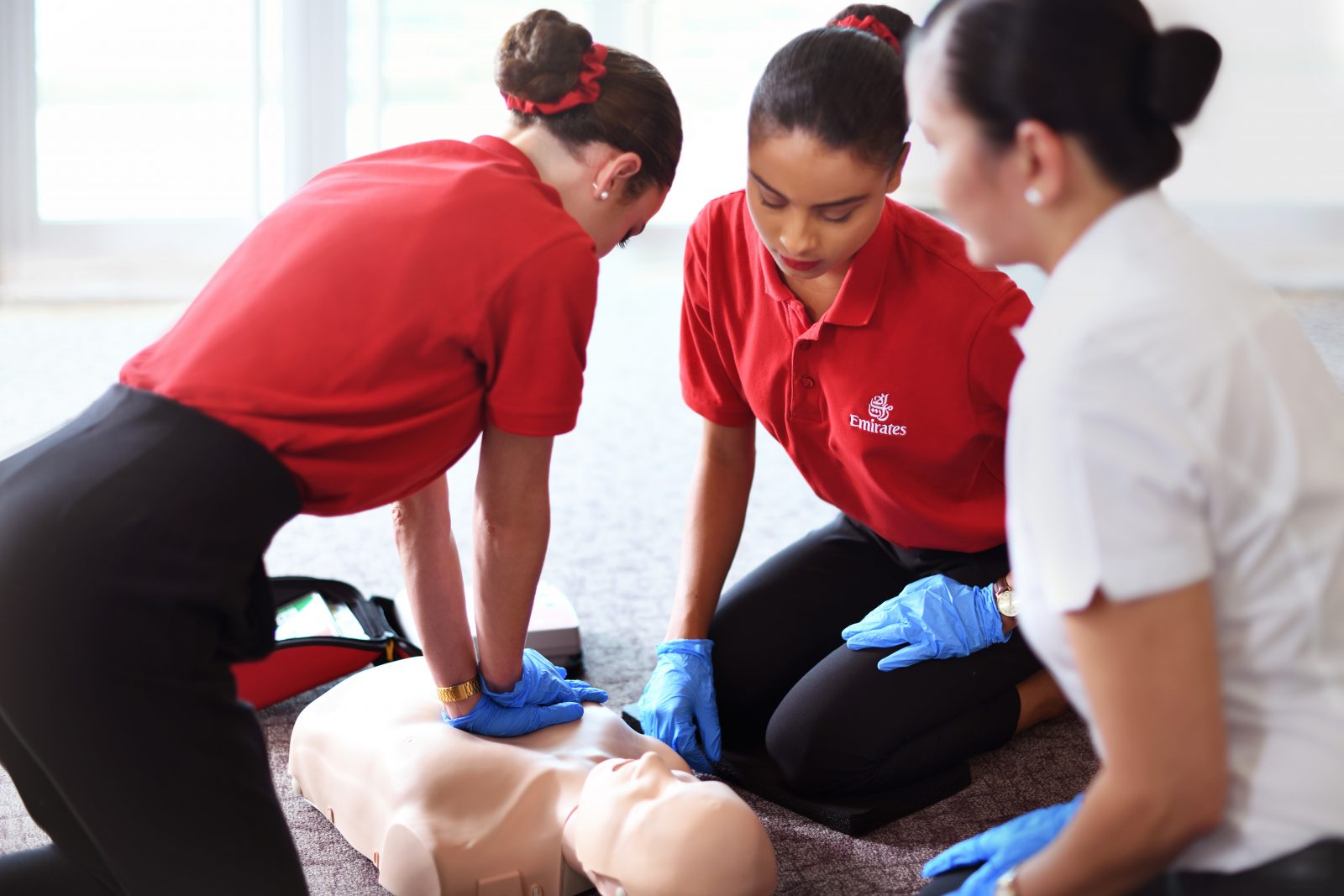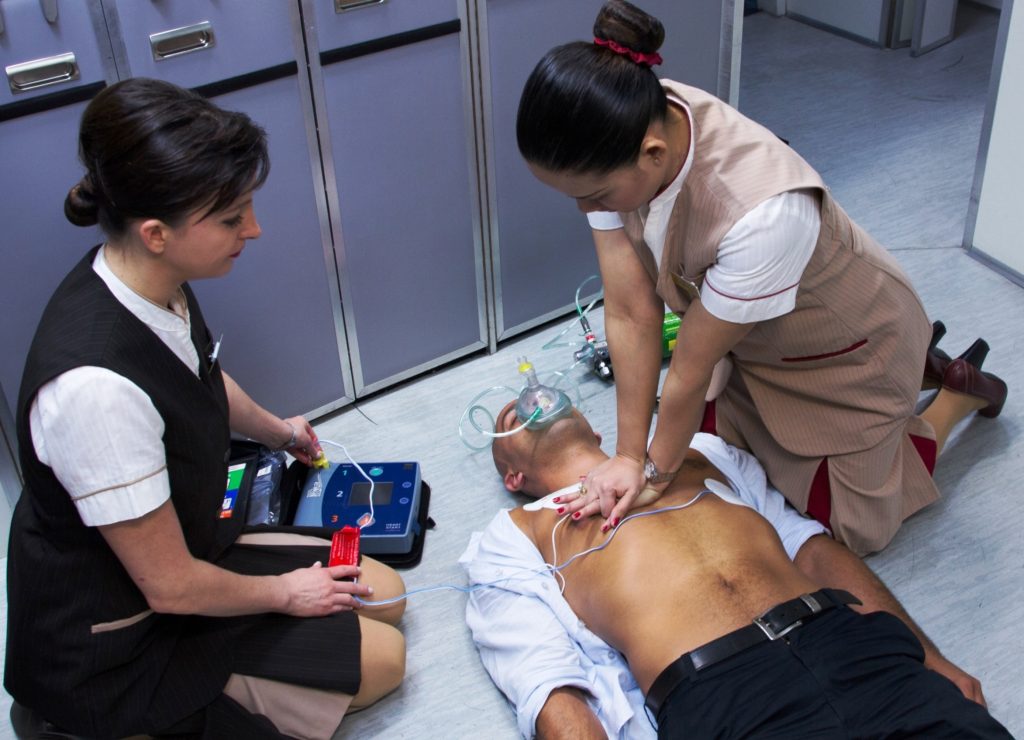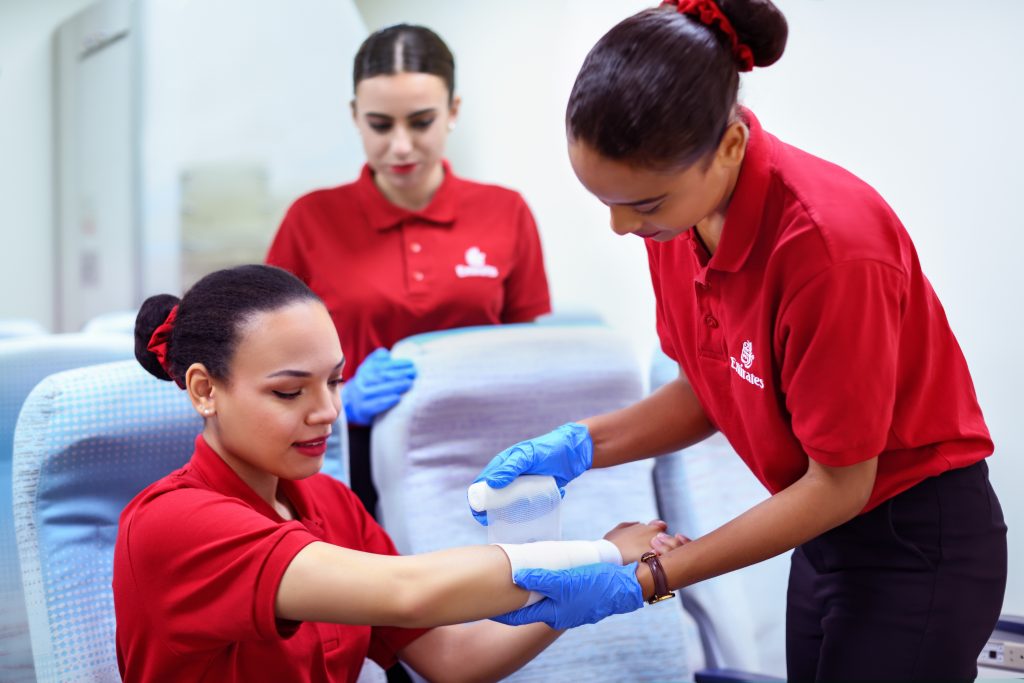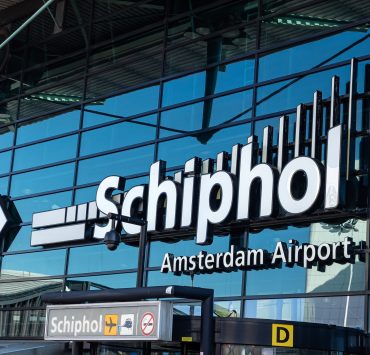
In July alone, Emirates cabin crew successfully saved the lives of two passengers on two different flights after they suffered a cardiac arrest. The feat is truly remarkable given the fact that fewer than 1 in 10 people survive a cardiac arrest outside of a hospital setting.
Cardiac arrest is when, for a variety of reasons, the heart suddenly stops beating. The vast majority of cardiac arrest cases occur outside of a hospital but quick medical intervention, even from someone with little training, can dramatically improve someone’s chance of survival.


According to the UK’s National Institute for Health and Care Excellence, immediately starting cardiopulmonary resuscitation (CPR) can double, and in some cases even treble, a victim’s chances of survival.
And early defibrillation using an Automated External Defibrillator (AED) within 3 to 5 minutes of collapse can improve survival chances even further – up to 50 and sometimes 70 per cent.
An AED is a sophisticated and highly-portable piece of equipment that analyzes someone’s heart rhythm and delivers an electrical shock through specially placed sticky pads in an effort to re-establish an effective heart rhythm.
In both cases in July, Emirates cabin crew got to work immediately, using effective CPR and an AED to save the passengers’ lives. The Dubai-based airline says both patients are continuing to recover well.
Emirates shared this story to mark World First Aid Day – an international event that is celebrated on the second Saturday of September every year to promote the importance of First Aid in everyday life. The theme of World First Aid Day 2022 is ‘Lifelong First Aid’.
Emirates cabin crew complete a rigorous First Aid training program as part of eight weeks of intense ‘ab-initio’ new-hire training. The airline has already trained 3,000 new crew with life-saving First Aid skills so far this year and thousands more will be trained over the coming months.
The list of First Aid skills cabin crew are taught is impressively long and includes dealing with a collapsed casualty who has fainted, managing choking, recognising and managing breathing difficulties like asthma and hyperventilation, sudden illnesses like chest pain, stroke, low blood sugar, allergic reactions, deep vein thrombosis, barotrauma, decompression illness, and substance misuse.
Cabin crew must also learn how to deal with fractures, burns, and amputations. Even before the pandemic, crew also learned about communicable diseases and infection control procedures.
Each year, cabin crew must requalify their First Aid skills by completing a two-hour practical assessment that includes CPR, using an AED and dealing with a severe allergy reaction, alongside an online course.
Thankfully, cabin crew aren’t alone when a medical emergency does take place at 38,000 feet. Emirates has its own dedicated Ground Medical Support team in Dubai who are available 24 hours a day via satellite phone to advise and support crew wherever in the world they are.
In some cases, medical experts on the ground can advise the pilots when it is (or isn’t necessary) to divert due to a medical emergency. Back in 2013, Emirates diverted over 100 flights for medical emergencies at a cost of more than $12 million.
Mateusz Maszczynski honed his skills as an international flight attendant at the most prominent airline in the Middle East and has been flying throughout the COVID-19 pandemic for a well-known European airline. Matt is passionate about the aviation industry and has become an expert in passenger experience and human-centric stories. Always keeping an ear close to the ground, Matt's industry insights, analysis and news coverage is frequently relied upon by some of the biggest names in journalism.









